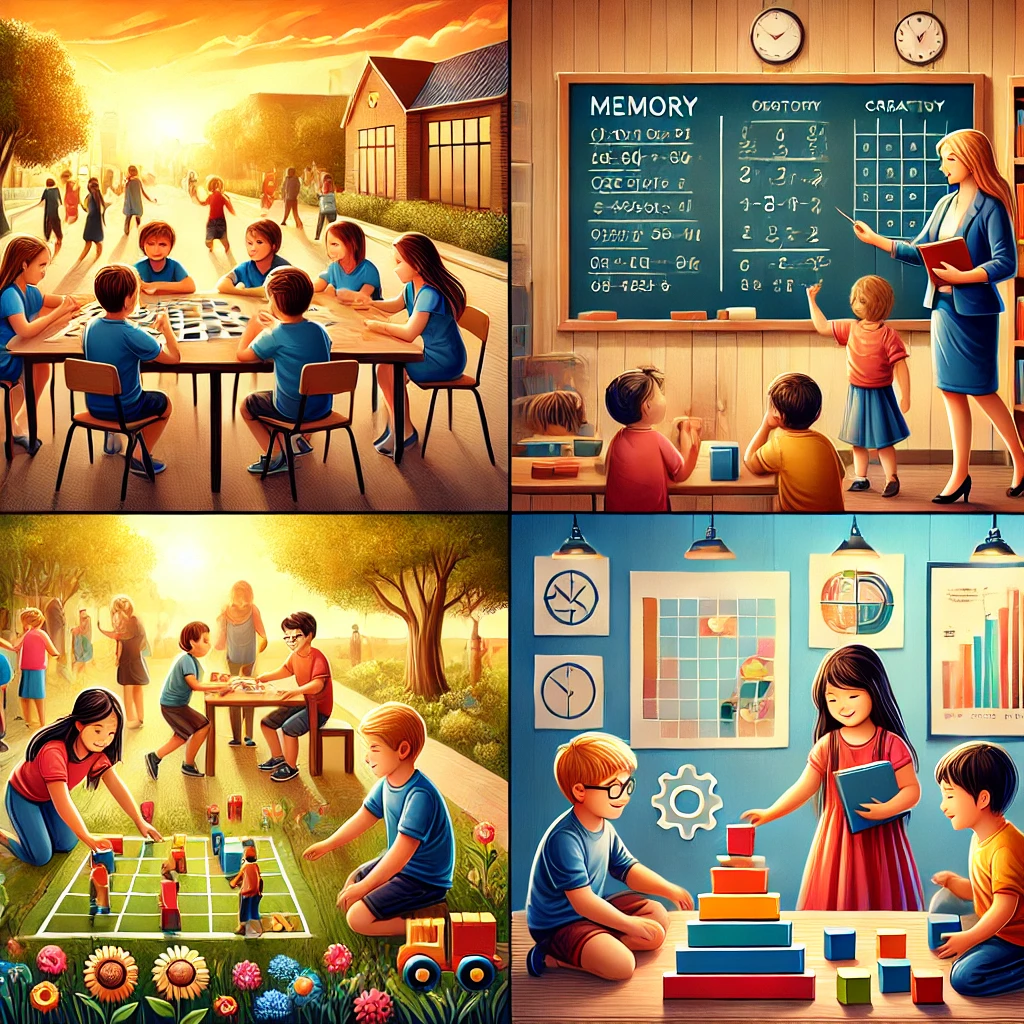-
No Comments
-
-
September 23, 2024
The development of mental skills in children of school age is a very important aspect of general growth, affecting performance at school, emotional balance, and future life competence. In a world where mental faculties are put to the test more than ever, this becomes all the more vital considering the competitive and fast-paced nature of things around us. Cognitive skills like memory, attention, problem-solving, critical thinking, and emotional regulation are the building blocks of both academic performance and life outside school. In this post, we will look at why school-aged children need mental skills development and how parents, teachers, and educators can encourage it as a part of child-rearing for nurturing young minds.
Performance is a Mental Skill
Mental skill development involves activities that help your child improve their critical thinking, problem-solving, concentration, and emotional management. Key mental skills include:
- Memory: The brain’s ability to store and recall information.
- Attention and Focus: Maintaining long-term concentration.
- Problem-Solving: The ability to solve challenges or puzzles.
- Critical Thinking: Interpreting knowledge to make informed decisions.
- Emotional Regulation: Managing feelings and responding to challenges with balance.
These skills are not innate talents and can be cultivated with the right learning strategies, exposure to varied experiences, and adult guidance.
The Role of Mental Skill Development in Academic Success
As children progress through school, they face increasingly complex academic tasks. Success in these tasks requires well-developed mental faculties, particularly in areas like literacy, numeracy, science, and language arts.
- Improved Learning Capabilities: Children with strong cognitive skills can retain and process information more effectively. Memory and attention span are key to maintaining focus during lessons and completing homework.
- Problem-Solving and Critical Thinking: Subjects like math and science often require students to solve problems systematically. Developing critical thinking skills helps children analyze questions, explore multiple solutions, and apply logic to find answers, which is useful both in school and in life.
- Increased Creativity and Innovation: Mental skill development fosters creativity, encouraging children to think outside the box. This innovative thinking is crucial in today’s world, where creativity is highly valued across many fields.
- Time Management and Organization: Children with strong mental skills can manage their time effectively, prioritize tasks, break down large projects, and meet deadlines—key skills for academic success and future careers.
The Impact of Mental Skill Development on Emotional Health
Mental skill development is essential for emotional and social well-being, in addition to academic success.
- Emotional Regulation and Resilience: Emotional regulation helps children manage stress, cope with disappointment, and adjust to new situations. Children who can control their emotions are better equipped to handle challenges calmly and recover from setbacks.
- Better Social Relationships: Children with strong emotional intelligence are more empathetic and able to form healthy relationships with peers. They can handle social situations, express their needs, and collaborate effectively in group settings.
- Increased Self-Esteem and Confidence: As children develop mental skills and experience success in various areas, their confidence grows. High self-esteem is crucial for overall well-being and influences how they approach future challenges and opportunities.
- Reduced Anxiety and Stress: Developing mental skills also reduces anxiety. Children who are better equipped to solve problems, manage time, and regulate their emotions are less likely to feel overwhelmed, leading to lower stress levels and a more balanced approach to life.
Long-Term Benefits of Mental Skill Development
The benefits of mental skill development in childhood extend well beyond school, impacting life in adulthood.
- Better Decision-Making: Strong cognitive and emotional skills help children make thoughtful decisions as they face more complex choices in life.
- Adaptability: Mentally resilient children are more adaptable to change and uncertainty, a critical skill in today’s ever-changing world.
- Better Career Prospects: Employers highly value mental skills like problem-solving, critical thinking, and emotional intelligence. These skills help individuals come up with innovative solutions and manage challenges in the workplace.
- Lifelong Learning: Children who develop strong mental skills are more likely to be lifelong learners, maintaining curiosity, focus, and a drive for personal and professional growth.
Strategies for Supporting Mental Skill Development in Children
Both parents and educators play crucial roles in fostering mental skill development. Some effective strategies include:
- Play-Based Learning: Games, puzzles, and creative activities promote problem-solving, memory, and attention development.
- Critical Conversations: Encourage children to ask questions and think critically about the world around them.
- Problem-Solving Opportunities: Provide hands-on activities that challenge children to think independently and solve problems.
- Wise Use of Technology: Educational apps and platforms can enhance memory, attention, and problem-solving skills, but balance screen time with other learning activities.
- Encouraging Emotional Expression: Teach children to identify and manage their emotions using techniques like deep breathing or calm-down strategies.
- Offering Support and Encouragement: Positive reinforcement helps children build confidence and develop mental skills. Encourage effort and provide constructive feedback when needed.
Conclusion
Mental skill development is crucial for a child’s overall growth, shaping their academic, social, and emotional success. By fostering cognitive and emotional skills, parents and educators can equip children with the tools they need for a successful and fulfilling life beyond the classroom.


Recent Comments